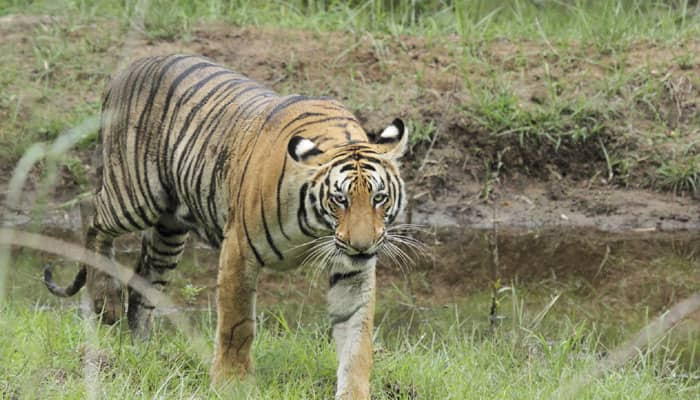Kathmandu: India along with 12 other Asian nations which are home to world's decreasing tiger population Friday declared a war against traffickers and agreed to share intelligence to stop poaching of the endangered animal.
Representatives from the countries expressed commitment to stamp out poaching, as they concluded a five-day conference co-hosted by Nepal and conservation group WWF.
"This is the beginning of the end for poaching across Asia," said Mike Baltzer, leader, WWF Tigers Alive Initiative.
The conference adopted five recommendations which include swift and decisive action against poaching, cooperation among stakeholders within and between borders, adoption of zero- poaching toolkit, augment training and support for rangers and other frontline staff, said WWF Nepal.
The recommendations also include a commitment to deify a zero-poaching national contact point to effectively coordinate trans-boundary efforts to stop poaching, the group said in a statement.
"We cannot allow wildlife crime to continue to wrap its tentacles deeper into the region," said Tika Ram Adhikari, director general of Nepal's department of wildlife conservation and soil conservation.
Trafficking and habitat destruction have slashed the global tiger population from 100,000 a century ago to nearly 3,000, according to International Union for the Conservation of Nature.
"Our individual efforts may win us a few battles, but we can only win the war if Asia presents a united front to stop the poaching, end the trafficking and wipe out demand," said Adhikari.
Nepal -- home to around 200 tigers, 534 rhinos and 150 wild elephants -- was the natural host of the conference, having achieved zero-poaching twice in the past four years.
"Nepal was proud to host this vital Asian conversation meeting because we recognise that poaching is robbing us of our wildlife wealth, which includes tigers, rhinos and elephants," he said.
At the closing of the conference, Nepal's legendary Chitwan National Park (CNP), where more than 100 Royal Bengal Tigers live, was accredited the first Conservation Assured Tiger Standard (CATS) global site.
According to experts, the CNP protected area has seen an increasingly effective management and protection regime, despite threats from poachers.
"This further demonstrates the commitment of Nepal towards zero poaching," said WWF Nepal deputy country director Diwakar Chapagain.
Col Babu Krishna Karki, director of Nepal Army's National Parks and Wildlife Reserves, said:"Zero poaching is achievable when enforcement is relentless?24 hours a day, seven days a week."
Nepal government has mobilised around 5,000 army personnel for the protection of wildlife in its protected areas spread over 23 per cent of the country's total territory.
Thirteen Asian countries -- Bangladesh, Cambodia, China, Vietnam, Malaysia, Russia, Indonesia, Myanmar, Thailand, Nepal, India, Bhutan, and Laos -- took part in the meet.
To collaborate in combating wildlife crimes, Nepal and India will have a meeting of officials of Bardia National Park and Katarnighat Wildlife Sanctuary at Katarnighat, India next week.
















